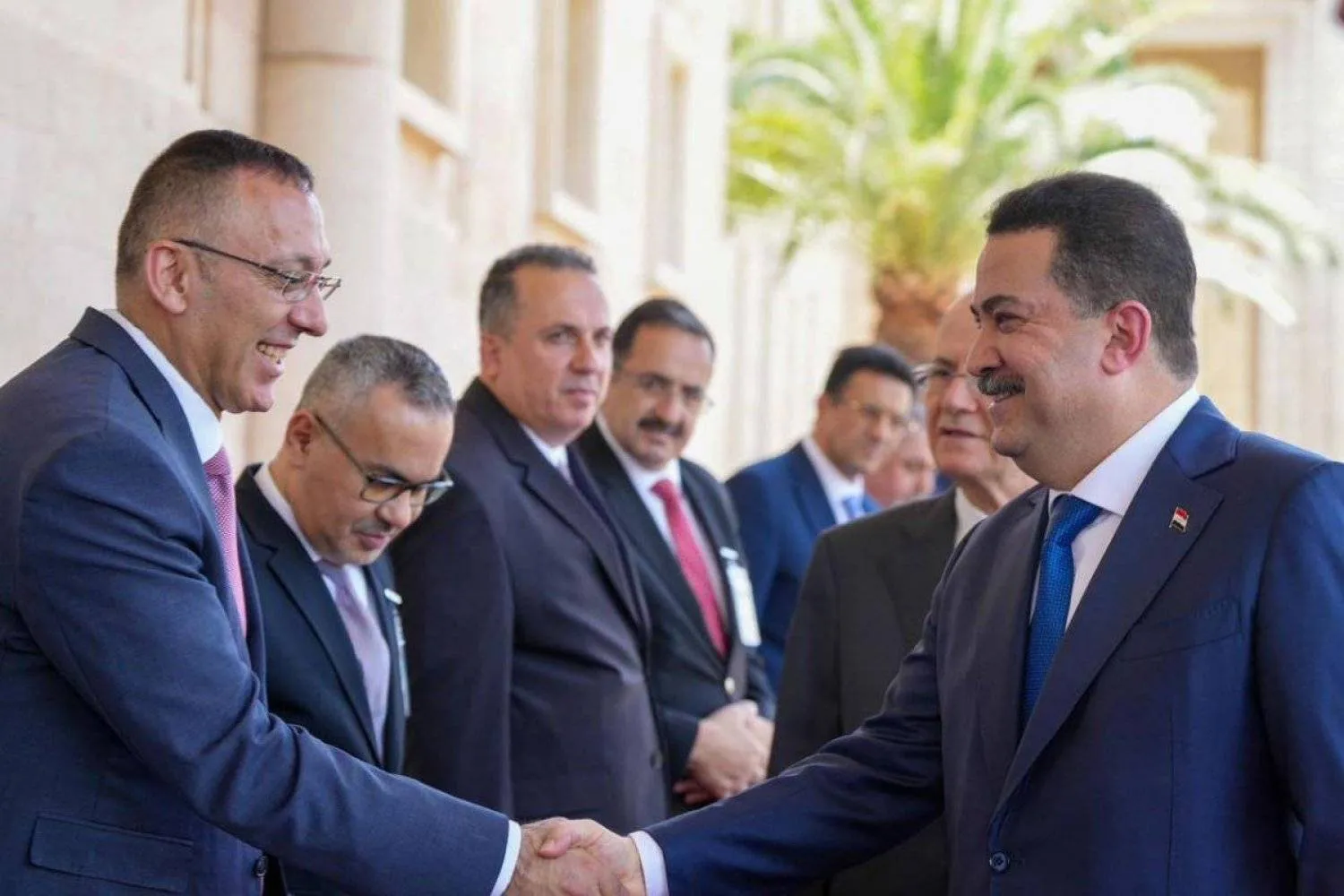The Iraqi government dismissed on Tuesday local and Western media reports saying the leadership of the Palestinian Hamas movement was planning on leaving Qatar and relocating to Iraq.
The reports said Hamas’ decision follows weeks of pressure from Qatar to accept a Gaza ceasefire proposal.
“Hamas offices will not be opened in Baghdad as the media reports claimed. We have not received a request for the transfer of Hamas leaders or the opening of an official office in Iraq,” the political advisor to the Prime Minister, Fadi Al-Shammari, told Asharq Al-Awsat on Tuesday.
A source close to the government told Asharq Al-Awsat that the relocation of Hamas leaders Khaled Meshaal and Ismail Haniyeh to Baghdad is highly unlikely.
“Hamas has not asked the Iraqi government to open an office or move their headquarters to Baghdad,” he stressed, dismissing as “baseless” reports about the issue.
Western media had said the Iraqi government had approved the move last month following discussions between Haniyeh and representatives from the Iraqi and Iranian governments.
They said the potential move was also reviewed separately last month by Haniyeh and Iraqi Prime Minister Mohammed Shia Al-Sudani.
The United States’ The National quoted a senior Iraqi MP as saying: “There is no consensus among Iraqi political groups on Hamas’ move to Baghdad. Some, especially the Kurds and some Sunnis, fear it will deepen differences with the United States.”
Meanwhile, Iraqi media outlets said Hamas this month opened a PR and media office in Baghdad with official government approval.
The Iraqi “Kataib al Imam Ali” faction, led by Shibl al-Zaidi, who is on the US sanctions list, revealed that some of its members attended an official opening ceremony of a Hamas political office in Baghdad.
Ambiguous file
Despite the official Iraqi government denial, Iraqi MP Sajjad Salem said the transfer of Hamas’ leadership remains a “vague and mysterious” issue.
“A lot has been said of the issue behind the political scenes, but most of it is inaccurate and unclear,” he told Asharq Al-Awsat.
“Iraq has no problem with receiving Palestinian refugees, whether politicians or ordinary citizens, given their severe suffering Gaza and since Iraq is a signatory to international agreements related to refugees. However, we are not ready to drag Iraq to a problem that is too great for it to handle,” Salem added.
He stressed that Baghdad is willing to help the Palestinians, but warned that “outlaw groups may view Hamas’ relocation as a clear violation of government powers.”
“Iraq does not need to insert itself in the war of the axes or in regional and international conflicts that do not serve its national interests,” Salem said.
Furthermore, he ruled out the possibility of Hamas leaders moving to Iraq given the unstable security situation and the religious and sectarian considerations and sensitivities existing in the country.









